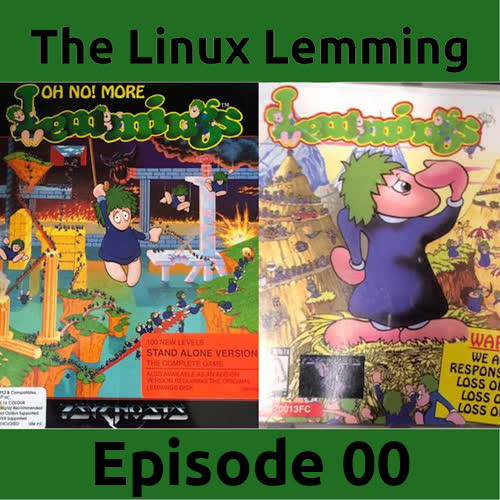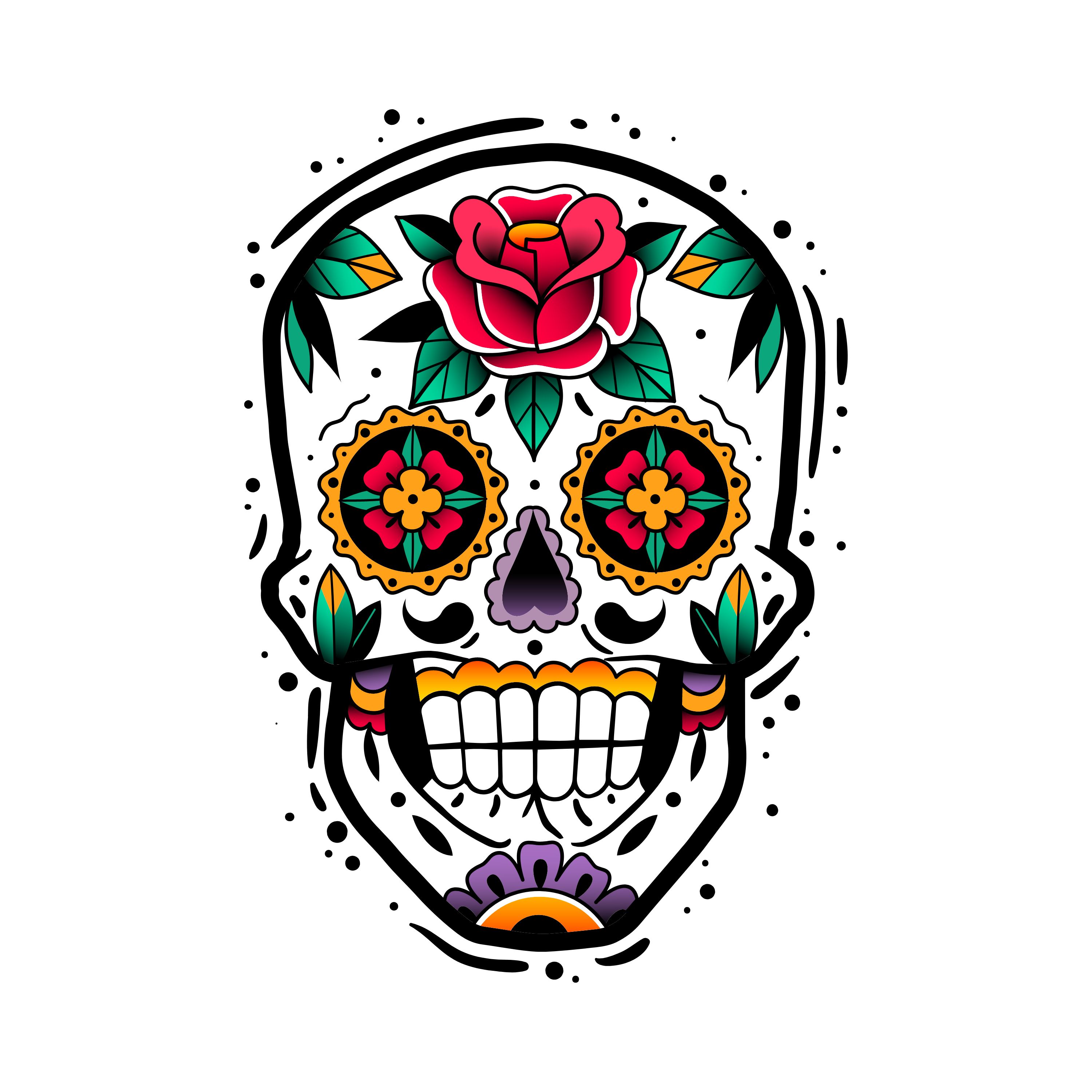Prepare to Launch
Posted on Friday, Mar 5, 2021
Transcript
Hello, and welcome to the Linux Lemming. So this is Episode 00, not really going in line with the view of what this whole project will be, but I need to get something out there to start, and I’m learning along the way. So this is Episode 00, I’m Rasta Calavera, I’m a long-time desktop Linux user, and I’m fairly new to the server realm. I have a very small self-hosted setup, I don’t think it’s correct to call it a home lab because it’s really just a bunch of raspberry pies running Docker containers and things like that, so my experimentation is pretty basic. I would describe myself as a hobbyist who knows enough to start projects, but doesn’t have enough free time to maintain them or spend hours troubleshooting them. Now don’t get me wrong, if something happens, I’m going to try my best, but I just don’t have a time investment that others may have. So this gets me to the idea of a lemming. So I consider myself a lemming, and when I use that word, I’m defining it as someone who appreciates, like, concise, up-to-date documentation and really just wants to see more of it widely available. And we’ll get into that in Episode 1 a bit more. I’m also an Advid podcast listener, I consume a lot of podcasts from all across the spectrum, some of the technology ones, I really enjoy everything that comes out of Jupiter Broadcasting, Destination Linux, Joe Resington over in the UK there, and doing Late Night Linux, and also the Ubuntu podcast over in the UK. Those are all great, great ones, and if you haven’t heard of them, I highly, highly suggest that you look them up. So what’s this project going to be like? Well, I think this is going to be mainly a place for people to listen or read my journey as I kind of go through this, and they can do that either by listening to the podcast or reading along with blogs. I’m going to pick projects and just blindly follow the documentation, and I’m going to report back on any successes and roadblocks that are along the way. You know, as things happen, I will try to submit upstream changes to projects for their documentation if such a thing is available on GitHub or GitLab, and also I will submit tutorials if it’s appropriate to the project or just in general. And that gets me to this next point. This whole thing, this is not a dedicated information hub for how-to’s. You know, so many already exist that I would rather contribute back to those than reinvent the wheel. So I would consider this mainly like a staging area for documentation that will be pushed out to those bigger areas. And just a little example of that, based on the podcast I listen to, things like front page Linux from Destination Linux or wiki.linuxdelta.com, which is run by Noah Chalaya. And also on the JB side, there is a self-hosted.wiki that needs a lot of love. So I feel like, you know, I would try to hit all of them if it’s really relevant. So can you contribute to this? Yes, please, please, please, please contribute to this. I kind of think of this as an open podcast. So I listen to a lot of podcasts, but I can’t really participate in the active ongoing discussion. I would kind of classify myself as more of a lurker in the community. I’m just really busy with my home life and work life that I consume everything at my convenience. So I can’t hop in mumble, I can’t do jitsies or matrix or anything like that. I just listen to the podcast feed. And you know, I’ve really always wanted to get into podcasting and there was really no easy barrier to entry. So if there’s other listeners out there who want to try podcasting, I want to make this a place where they can cut their teeth and you know, we’ll take submissions and put them in. So if you want to try your hand at podcasting, I really recommend you do it here. If you want to submit your experience with projects, any documentation that you’ve already made, again, we can get the wheels moving here and then push it to those other locations. And for those contributions, I want to try to keep everything within GitLab. That’s where this repository is going to live and that will allow process tracking and things like that. So that’s going to be my primary goal for contributions is to try to keep it within GitLab. So is there a schedule for this? No, not really. I can only record audio at night or on days when I’m alone because I have a really loud ambient noise in my living space. So I am pretty limited on when I can actually do things. I’m really going to try for one new edition per week or maybe a bi-weekly schedule if time allows. And if community involvement picks up, well, then we’ll release more frequently. So it’s kind of, you know, at our discretion currently not on iTunes or Pocketcast or Spotify or Stitcher or anything like that. I don’t really plan on pushing to those locations unless I have time or the community involvement really kind of takes off or picks up because right now I’m just one guy sitting in a basement talking into the void. So I don’t really see the point to push it out to those locations. So again, like I said, I don’t really consider this an official submission based on the ideals of the project. This is more of an obligatory episode. That’s why I’m using the Episode 00 tag for all of this. I haven’t quite settled on a topic yet for Episode 1. I’m thinking maybe it’ll be about how to use get since I’ve already created a lot of documentation for that on the destination Linux side. And since that’s how I want contributions to come in, probably would make sense to cover that first. So this will bring us to the end of Episode 00. And if you’re here in this and you want to contribute, then please head on over to thelinuxlemming.com.Show Notes
Introduction
Who am I?
- Long time Linux Desktop user and new to the server realm.
- Hobbyist who knows enough to start projects but doesn’t have enough free time to maintain or spend hours troubleshooting.
- A “lemming” who appreciates concise, up to date documentation and wants to see more of it widely available.
- Avid podcast listener.
What Will This Project Be Like?
- Place for people to listen/read to my journey via podcast and blogs. Will pick projects and blindly follow the documentation and report back on successes and roadblocks.
- Will submit upstream changes to projects on documentation if possible.
- Will submit tutorial if appropriate to other projects.
- This will not be a dedicated information hub!
- So many already exist, would rather contribute than reinvent the wheel.
- Community contributions are WANTED!
- Want to try your hand at podcasting? Do it here!!
- Want to submit your experience with a project/documentation, do it here!
- Try to keep everything within GitLab for easy additions.
Is there a schedule?
- Not really. . .
- Can only record audio at night or on days when alone due to high volumes of ambient noise.
- Will try for 1 new addition per week or biweekly as time permits.
- If community involvement picks up, then more will be released.
- Currently not on iTunes/PocketCasts/Spotify/Sticher/etc.
- Don’t really plan on doing these unless I have time or community involvement picks up.
First “Official” Episode?
- I wouldn’t consider this an official submission based on the ideals of the project. This is more of an obligatory episode, thus the E00 tag.
- Haven’t settled on the topic for E01 yet, maybe how to use Git since I have documentation for that already and that is how I would prefer contributions to roll in.
Hosts

RastaCalavera
I’ve been hammering on Linux since 2002, but I’ve been serious about using it since 2009. I’ve always been a desktop user and only got into server side linux in 2014. KDE and XFCE are my main desktop environments and I primarily run an Ubuntu base (although I do try Arch variants once in a while.) Since getting into server side linux, I’ve really focused on self-hosting simple things. This was, and still is, a steep learning curve for me. I find that I’ve poured hours into research and am constantly frustrated at vague or incomplete documentation. This leads down rabbit holes of forum posts that are usually outdated and cause more issues than solutions. I started the Linux Lemming because most beginners are just that. People who find a cool idea and then follow the directions blindly, hoping for a working solution, because the information is directly there in front of them. The goal of this is to share frustrations, solutions, and successes. Most recently, I’ve been active on the Destination Linux Discourse forum but I’ve also contributed to other projects and communities.